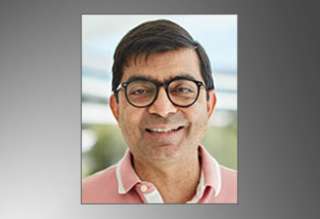(ME-UYR) Mentoring Experiences for Underrepresented Young Researchers Program
Top Reasons to Join SPS Today!
1. IEEE Signal Processing Magazine
2. Signal Processing Digital Library*
3. Inside Signal Processing Newsletter
4. SPS Resource Center
5. Career advancement & recognition
6. Discounts on conferences and publications
7. Professional networking
8. Communities for students, young professionals, and women
9. Volunteer opportunities
10. Coming soon! PDH/CEU credits
Click here to learn more.
Mentoring Experiences for Underrepresented Young Researchers (ME-UYR) Program
SPS Mentors for ME-UYR Program

>> View the ME-UYR Program Call for Mentors Announcement
Mission and Vision
Mentoring Experiences for Underrepresented Young Researchers (ME-UYR) is an IEEE SPS initiative that started in 2021. ME-UYR provides mentoring experiences for young researchers from underrepresented groups by pairing them with an established researcher in signal processing from a different institution, and typically another country, for a nine-month collaborative research project. The program culminates in a joint publication and an event held yearly at ICASSP.
Why is the program important?
The number of non-male researchers in signal processing within the IEEE community is around 10%. This number is higher at the PhD student/graduate level but quickly drops off for higher positions. The numbers for other underrepresented minorities and other technical areas within signal processing are similar or even worse. Improving diversity within in signal processing – in all areas and at all levels – is an urgent priority for the Signal Processing Society. This initiative aims to increase diversity and improve retention for researchers from underrepresented within all areas of signal processing.
The goal of ME-UYR is to increase (gender, underrepresented minority groups, and geographical) diversity in signal processing by attracting and retaining more young non-male researchers and researchers from other underrepresented minority groups at both the undergraduate and graduate levels. All ME-UYR Program participants are required to be IEEE Signal Processing Society members of student or graduate student membership grade levels.
Program Roles
The Young Researcher
Young researchers who self-identify as members of underrepresented groups, including gender, geographical, ethnic, and others, who are in the early stages of academic life (i.e. undergraduate and graduate students), and who are members of the Signal Processing Society are eligible to participate in the program. 
The mentor is an established researcher who acts as the advisor of the young researcher for the duration of the project. The advisor provides the student with guidance, as well as access to resources (including computational ones), datasets, and so on depending on the needs of the project. The advisor supervises the project and links the student to other students/researchers in their lab to further increase the student’s network and knowledge.
Program Scope
The young researchers and mentors are expected to work in cooperation for the duration of the program (about 9 months). The mentor and young researcher are expected to meet (online) periodically, preferably weekly or every two weeks, to advance the project.
Using the travel funds awarded for each project, the student must attend ICASSP to participate at the ME-UYR event and can optionally plan a visit to the mentor’s laboratory. While the visit to the mentor’s laboratory should happen within the duration of the project, the attendance at the conference will happen in the following year.
At the end of the project, the young researcher and mentor are expected to co-author a publication and submit it to a special poster session during ICASSP. If the submission to the special session is not accepted by the conference technical committee, the output of the project can still be presented during ICASSP in a parallel event for the ME-UYR current and past participants.
Students with successfully published papers related to their projects will be invited to present their work to other SPS students via local chapters to increase the visibility of their work and of the program. The steering committee together with the SPS Regional Directors will assist in the connection with the local chapters.
Associated Events
- A yearly virtual event (approximately half a year after the projects have started) will take place where students and mentors of the same cohort can interact and learn more about each other’s work and network.
- A yearly event, in conjunction with ICASSP, will be organized for the students and their mentors where the students can present the progress of their work, network, and receive further mentoring from other mentors. The event may also include panel discussions.
- A special poster session will be held during ICASSP where the students can submit their papers written in co-authorship with their mentors and present their work.
- An extra event might be planned during ICIP, depending on the number of projects related to image and video processing.
- Participating students will be encouraged to attend the Women in Signal Processing Lunch and the Student Job Fair which are held during ICASSP and ICIP.
Application Process
- Call for mentors: A call for mentors will be sent out, to established researchers willing to advise young researchers from underrepresented backgrounds. Interested mentors will register online and their names will be listed on the ME-UYR website so that prospective students can contact them and develop project proposals.
- Connecting event: 1-2 months before the project proposal deadline, an online connecting event will be organized where interested students can learn more about the program and meet potential mentors.
- Call for project proposals: A call for project proposals will be put out asking for applications by the young research candidates within the research domains of the potential mentors.
The project proposals should be written by the young research candidates and their selected mentors. The proposal must be a maximum of two pages (11-point font, 2.5cm margins, A4 or letter paper) and include:
- Names and affiliations of the student and potential mentor.
- Start and end date of the project.
- Brief outline of the aim of the project.
- Rough outline of the project planning.
- Plan and budget for attending ICASSP and optionally visiting the mentor’s lab. The budget must be between $2,000 and $4,000 and may include travel costs, registration – to the main event and possibly to satellite events, tutorials, and short courses - meals, and accommodation.
- Overview of the needed resources and confirmation that the mentor can provide for these.
- Brief narrative of how this project would benefit the student in their future career in signal processing.
** In a project proposal, mentors and mentees must be from different institutions and preferably from different countries. Each mentor and mentee can only submit one project proposal.
Proposal Evaluation
The proposals received will be evaluated by the ME-UYR steering committee. The evaluation criteria include:
- Feasibility of the project topic and project planning.
- Quality of the project submission.
- Potential impact of the project on the student’s future career.
Additionally, geographical and gender distribution will be taken into account in awarding the grants.
ME-UYR Steering Committee
- Lucas Thomaz, Instituto de Teleomunicações/Polytechnic of Leiria, Portugal (Chair).
- Ruchi Pandey, International Institute of Information Technology (IIIT) Hyderabad, India.
- Ryan M. Corey, University of Illinois Chicago and Discovery Partners Institute, USA
- Odette Scharenborg, Delft University of Technology, Netherlands.
- Tirza Routtenberg, Ben-Gurion University of the Negev, Israel
- Mark Hasegawa-Johnson, University of Illinois, USA.
List of Current and Past Participants and Projects
A list with the current and past ME-UYR participants and funded projects (coming soon).
List of Potential Mentors
View the list of potential mentors on the SPS Mentors page.
Program Timeline
| Call for Mentors | 15 April - 15 September 2024 |
| Call for Project Proposals | 17 June - 10 November 2024 |
| Online Connecting Event | 23 September 2024 (tentative) |
| Proposal Evaluation Results | 29 November 2024 |
| Start of the Projects | Between December 2024-January 2025 |
| ICASSP ME-UYR Event 2025 | 7 April 2025 (tentative) |
| ICASSP ME-UYR Event 2026 | 25 May 2026 |
| Paper submission for the ICASSP 2025 ME-UYR Special Session | September 2025 (tentative) |
Where can I get more information?
In case of questions, please contact the ME-UYR steering committee using the following e-mail address: sp-me-uyr@listserv.ieee.org.
SPS on Twitter
- DEADLINE EXTENDED: The 2023 IEEE International Workshop on Machine Learning for Signal Processing is now accepting… https://t.co/NLH2u19a3y
- ONE MONTH OUT! We are celebrating the inaugural SPS Day on 2 June, honoring the date the Society was established in… https://t.co/V6Z3wKGK1O
- The new SPS Scholarship Program welcomes applications from students interested in pursuing signal processing educat… https://t.co/0aYPMDSWDj
- CALL FOR PAPERS: The IEEE Journal of Selected Topics in Signal Processing is now seeking submissions for a Special… https://t.co/NPCGrSjQbh
- Test your knowledge of signal processing history with our April trivia! Our 75th anniversary celebration continues:… https://t.co/4xal7voFER




